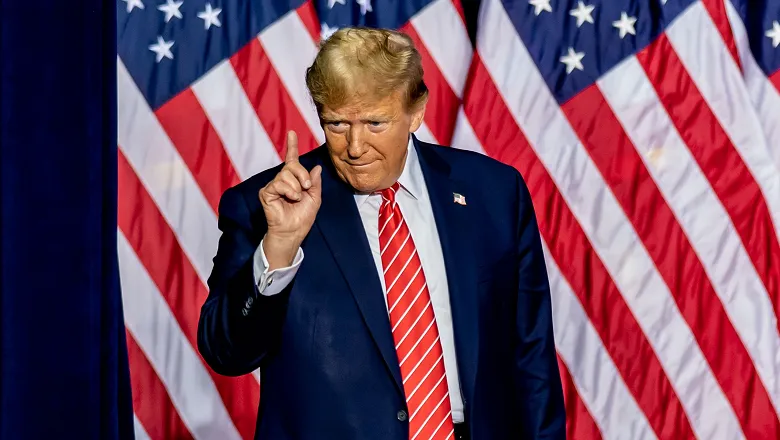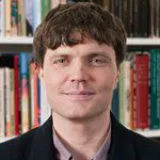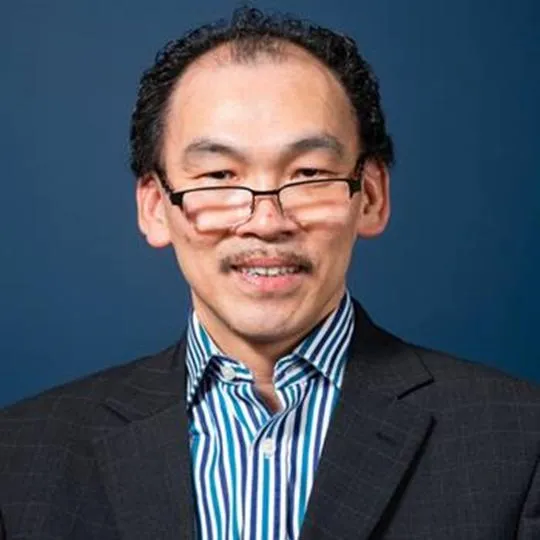Trump’s second presidency reflects a new form of American oligarchy. Billionaires have long enjoyed access to democratic administrations, but there is now a sense of more dubious motives creeping in.
Dr Georgios Samaras, Assistant Professor of Public Policy.
25 January 2025
What Trump's second presidential term could mean for the world
With Donald Trump now sworn in as the 47th US President, academics from King’s have been sharing insights into the implications of his presidency for the USA and the rest of the world.

Donald Trump's latest term as US President is set to transform American politics, according to Dr Georgios Samaras, Assistant Professor of Public Policy at the International School for Government.
He said Trump’s influential circle, including Elon Musk, Mark Zuckerberg and Jeff Bezos, and the drive to safeguard free speech has placed Facebook, Instagram, and X in near-complete control of cultural narratives. He said some of these involve “hateful rhetoric, authoritarian themes and misinformation which is increasingly going unchecked.”
He said the priority for many currently in power seems to be embedding ultraconservative ideas and this has important implications for other countries around the world.
Elon Musk’s recent activities show he has no qualms about transferring this brand of politics to Europe with his influence already seen in Italy, Germany and France. In the UK, the recent announcement by Yvette Cooper on the review of grooming gangs also suggests the UK government might struggle to resist his influence, which as it expands, could lead to him being seen as a far-right standard-bearer.
Dr Georgios Samaras, Assistant Professor of Public Policy.
Speaking to CBS News, he said European leaders would need to decide how to position themselves in regard to Trump and his policies. He suggested those who do not “bend the knee” will face the consequences of Trump's agenda.
Dr Samaras was also quoted in The Telegraph about Trump taking 'retribution' against his opponents in the US now he is back in the White House.
Professor Andrew Blick appeared on LBC with Andrew Marr, who suggested Trump is behaving like “an old-fashioned European monarch”.
In response, Professor Blick said the US constitution was designed with in-built checks and balances, such as a separate election of the President to Congress, two chambers in the Congress and the Supreme Court. However he said the problem with this was that Trump, or those close to him, seemed to have a hold of all these things.
Comparing the US to the UK, he said there are weaker protections within Britain's constitutional system which means if someone has strong majority in the House of Commons there are less limitations on what they can do.
He added that the UK has already "seen the Musk effect before the Trump presidency even started” with the owner of X shaping the agenda of British politics, such as the government announcing reviews following a series of posts by Musk. "Without his intervention would that have happened?” he asked.
Professor Blick suggested Keir Starmer and his team will be worried about upsetting Trump and what the consequences might be, although he said the obvious differences between the two political leaders could prove to be Starmer’s “superpower”.
There is not much evidence that Musk or Trump or those people are particularly popular in the UK… this could actually play to Starmer’s advantage in some way if the other political parties be it the Conservatives or Reform UK are seen as being too aligned with Trump, maybe that will help Starmer electorally in the longer term.
Professor Andrew Blick, Professor of Politics and Contemporary History.
Dr Charlie Laderman, Senior Lecturer in International History in the Department of War Studies, explored the likely impact of Trump on the transatlantic ‘Great Debate’ and NATO for the International Institute for Strategic Studies (IISS).
More than any other major American political figure since the inception of the Great Debate, Trump has consistently, vehemently and publicly questioned the relevance of NATO and America’s continued commitment to it.
Dr Charlie Laderman, Senior Lecturer in International History.
He outlined how Herbert Hoover’s speech in December 1950 began what became known as the ‘Great Debate’ over US foreign and defence policy and for almost a decade since Donald Trump entered politics, there has been a new incarnation of that debate.
What is clear is that Trump believes that the ‘prime obligation’ for the defence of Europe rests on Europe itself and is likely to predicate continued American protection on Europe’s doing more for its own defence.
Dr Charlie Laderman, Senior Lecturer in International History.
The Independent reported on research by The Policy Institute that showed Britons now favour European allies over the US and Director Professor Bobby Duffy said the shift is related to both the “febrile and unpredictable political atmosphere around the re-election of President Trump” and “the many years building closer ties to Europe since the 1960s.”
The study found that a majority of 53 per cent now say Britain should prioritise Europe, compared with 31 per cent who say the opposite – an almost mirror image of opinion back in 1967, when the public favoured America over Europe by 53 per cent to 33 per cent.
Professor Rex Li, Professor of International Relations and a Research Affiliate of the Lau China Institute, was quoted in The Telegraph about how the Trump presidency might affect the actions of China's supreme leader Xi Jinping towards Taiwan.
I think China does see an opportunity with Trump. Biden indicated that he wanted to defend democracy and defend Taiwan. Trump has been more ambiguous. He is less ideological and more transactional. He probably doesn’t care. Xi is upping the pressure with all the shows of military strength. He wants Trump to think that Taiwan is not worth defending because the cost would be too high.
Professor Rex Li, Professor of International Relations and Research Affiliate of the Lau China Institute
Dr Bence Nemeth, Senior Lecturer (Associate Professor) in the Defence Studies Department, was quoted in the Korea Herald and The Star (Malaysia) in an article about why Trump is courting South Korea to counterbalance China’s strong shipbuilding sector and maritime forces. This comes after the South Korean Hanwha Group acquired the Philly Shipyard last year and has secured contracts from the US Navy.
Dr Andreas Krieg, Senior Lecturer in the School of Security Studies, was quoted in the South China Morning Post on whether the Gaza ceasefire will hold while Trump attempts to broker Middle East peace. He explored the influence of Trump so far, current opportunities to seek a long-term resolution of the conflict, what concessions might be needed and the role likely to be played by other Gulf states.







